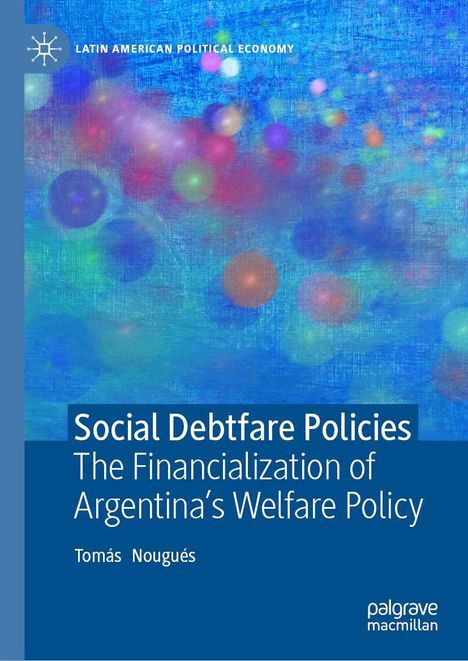Tomás Nougués: Social Debtfare Policies, Gebunden
Social Debtfare Policies
- The Financialization of Argentina's Welfare Policy
(soweit verfügbar beim Lieferanten)
- Verlag:
- Springer, 10/2025
- Einband:
- Gebunden
- Sprache:
- Englisch
- ISBN-13:
- 9783032025678
- Artikelnummer:
- 12357897
- Umfang:
- 212 Seiten
- Gewicht:
- 391 g
- Maße:
- 216 x 153 mm
- Stärke:
- 17 mm
- Erscheinungstermin:
- 10.10.2025
- Hinweis
-
Achtung: Artikel ist nicht in deutscher Sprache!
Klappentext
The book examines the evolution of Argentina's welfare policies from 1983 to 2019, focusing on the historical connections between social policies, financial markets, and households---an area largely overlooked in existing literature. Unlike previous studies that emphasize the role of cash transfers in facilitating low-income households' access to credit, this analysis highlights the financialization of welfare policies and its broader implications. The author identifies three distinct stages in the financialization process of Argentine welfare policy, illustrating how financial logic and instruments have permeated various aspects of welfare and the daily lives of low-income families. The book also introduces the concept of "social debtfare policies," which incorporate financial tools, particularly credit, as instruments to meet social needs. This shift signifies a move toward the financialization of rights related to economic, social, and cultural well-being. A central argument of the book is that the Argentine state has actively engaged in financializing welfare, employing financial knowledge and technologies to manage rising social tensions. This transformation reverses the traditional dynamic of social protection, where citizens are creditors of their rights and the state is the debtor. Instead, social debtfare policies position the state as a creditor and welfare users as debtors, thereby altering the relationship between individuals and the state regarding access to essential services such as work, housing, education, and basic consumption. The analysis reveals how this shift disrupts conventional social protection dynamics and highlights the state's evolving role from a debtor of rights to a creditor for the working poor, uncovering new dimensions of welfare provision in Latin America. Through a combination of regulatory analysis, expert reports, literature reviews, and interviews, the book provides a comprehensive view of the intricate ties between welfare policy and finance in Argentina.
Tomás Nouguésis a postdoctoral fellow at the Centro de Estudios Sociales de la Economía, Escuela IDAES, UNSAM, Argentina, with support from a CONICET scholarship.

